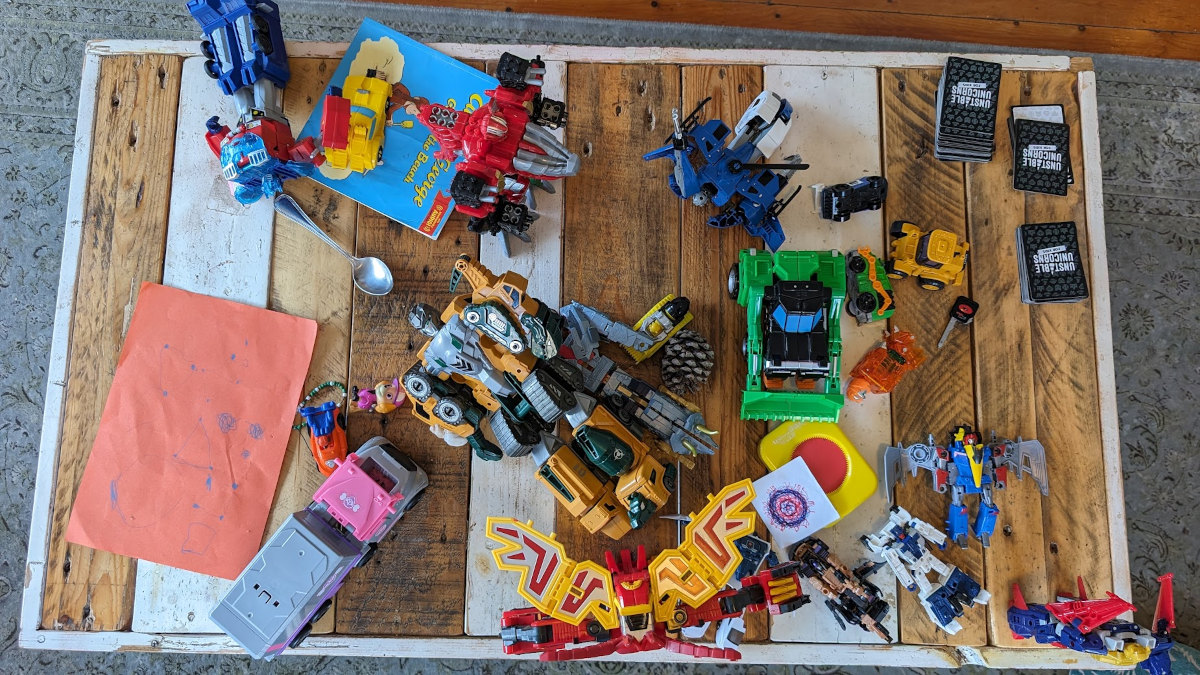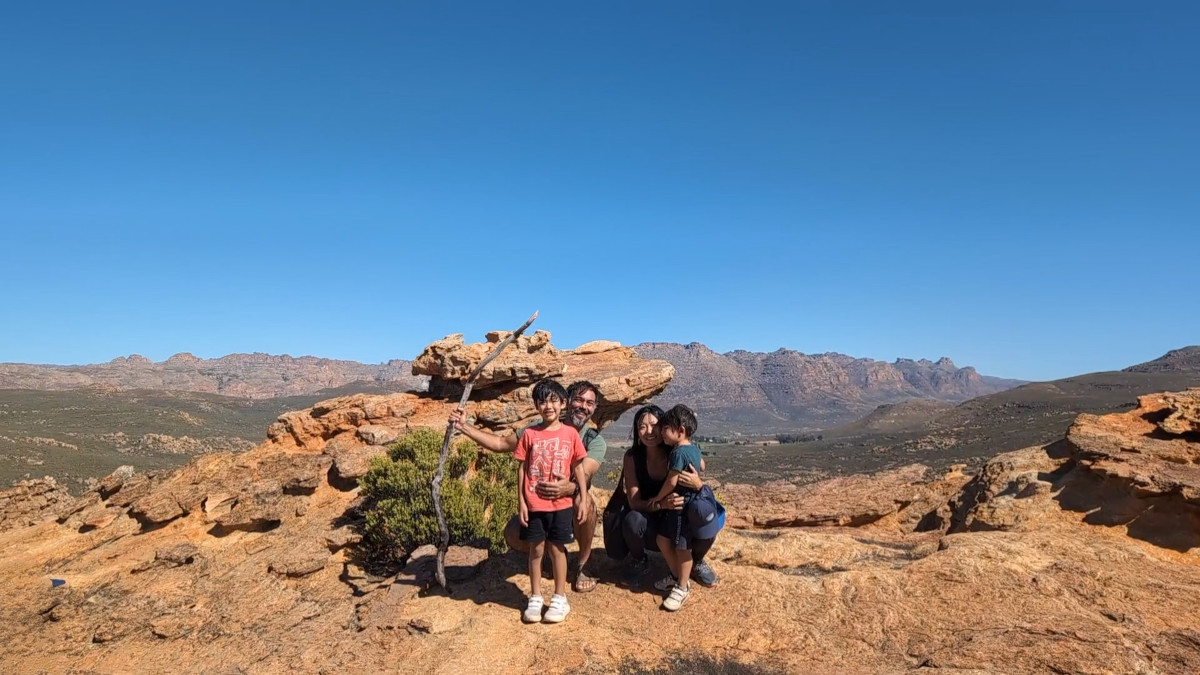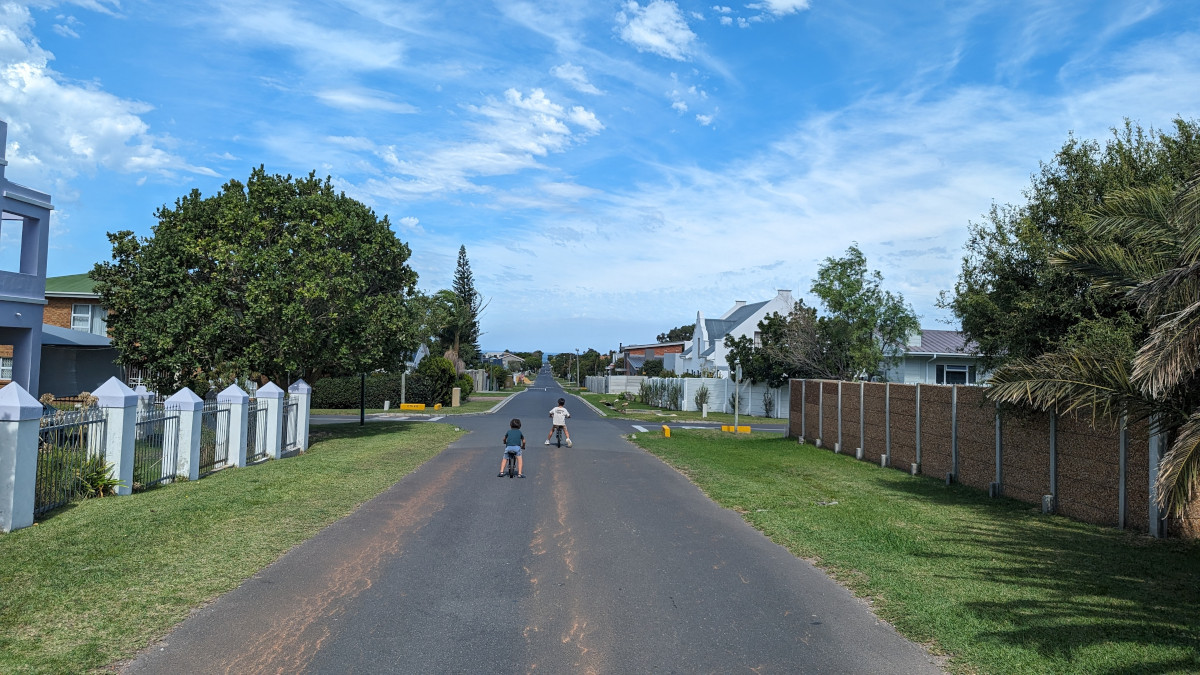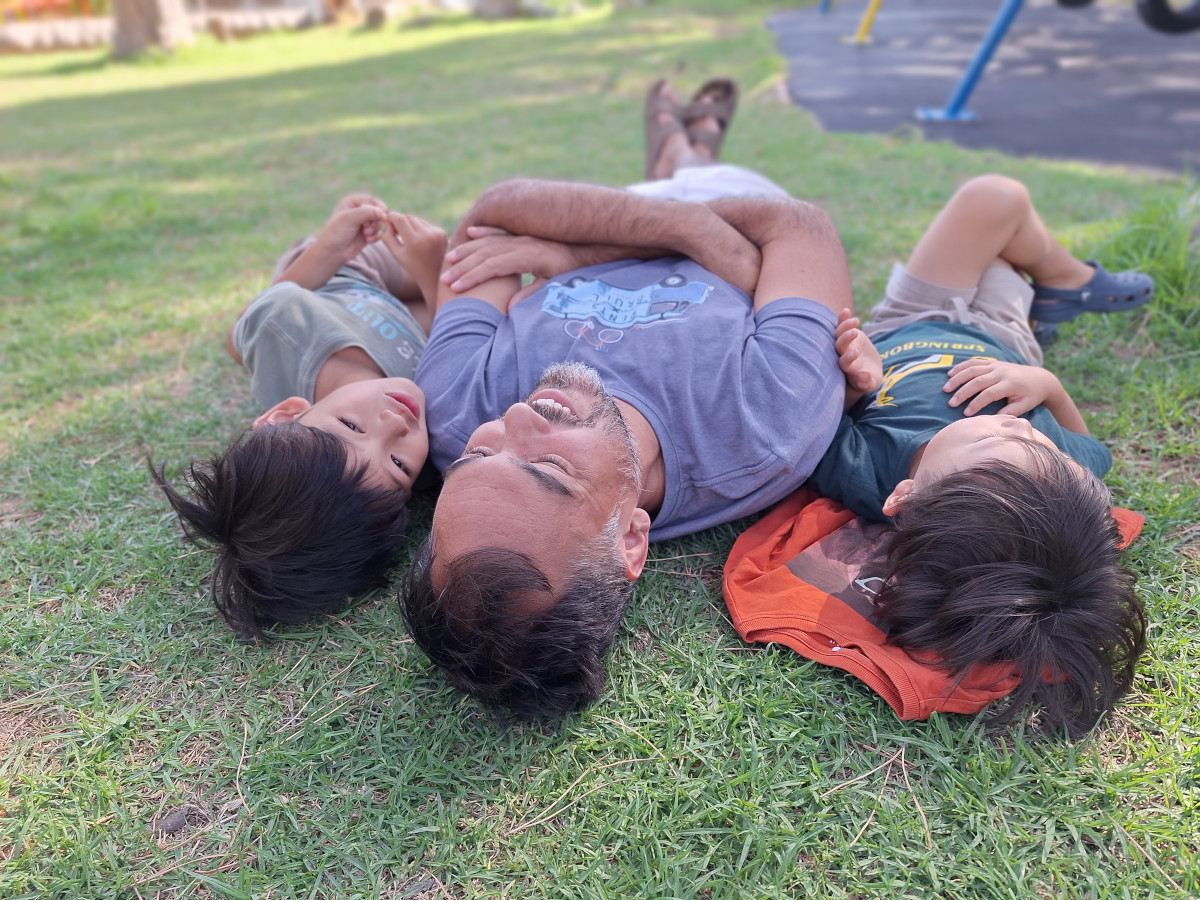Previous posts in the series: On being a new parent,
one year in, and having a second kid.
When I look back on this period of my life, two things will stand out.
The first is that I started running my own businesses full-time. The second is that I was a parent of small kids.
This post is about the second one.
Another mile marker on the road of parenting—five years in, and with two kids aged 3 and 5.
Being a parent has become routine
When you first have kids, one of the hardest things to deal with is that you no longer have control over your time.
You’ll be lying in bed, relaxing on your phone, and then, boom—your kid is crying and you have to stop what you’re doing and go deal with…something.
In the beginning, this sucks. Every. Single. Time.
But five years in? I barely notice it.
My down time just fits into these short little blocks between the demands of my children and that’s…fine?
The same is true for a thousand other ways that parenting changes your life.
Wake ups are always early, toys clutter my home, everything happens on a schedule, privacy is a lost concept,
and all of this just feels like normal life now.
And it dawned on me recently: I’m a full-blown parent now.

You might think that I staged this picture to demonstrate how cluttered houses with kids get,
but this is just what my coffee table looked like this morning.
I’ve become one of those people I used to find so boring.
Someone who walks around with food stains on their clothes, goes to bed early, and for some inexplicable reason
talks about their children socially even when they’re trying not to.
My 30-year-old self would be horrified at the person I’ve become.
What’s even weirder is that I like it!
I will sometimes choose to play transformers with a three-year-old instead of going to a party.
What?!
I used to think that people flipped into parent life the moment they had their first child—and to some extent they do.
But most of the change is the cumulative sum of a thousand experiences, reinforced over and over until they just become normal.
And that’s where I’ve finally ended up.
Age matters more than I realized
When my friends started having kids, it felt like they were joining a club—one that I’d join after having my own kids.
What I didn’t realize was that by delaying my own kids, I would be in a slightly-different club: the club of parents with younger kids.
And the same was true of friends who had kids after me. They’re parents of even younger kids.
These groups are not the same! They can barely vacation together.
This is because kids change very quickly.
Now I understand that as a family, your life is defined by two markers: the age of your youngest child, and the age of your oldest child.
The youngest child dictates how hard your life is.
Babies need all this extra equipment—bottles and diapers and bibs and strollers and god knows what else I’ve blocked from my memory—and
traveling with them is a logistical nightmare.
Toddlers bring their own issues—nap schedules, tantrums, rebelliousness and the attention span of… well, a toddler.
Plus, younger kids just can’t do a lot of stuff. There are entire categories of activities and vacations that are off the table when you have young kids.
What I didn’t expect was how much life is also shaped by the age of your oldest kid.
The oldest child is constantly pushing new parenting frontiers. The things you do with them are always firsts.
They learn to ride a bike, to read, or to navigate school, and you have to learn how to help them with these things at the same time.
Also, you’re always doing new things with your oldest kids.
I love playing video games with my five-year-old now—a thing that only recently became possible.
He’s starting to ask interesting questions about the world.
And I’m looking forward to bringing him on my favorite hikes soon. If the youngest child eliminates activities, the oldest child is constantly opening up new activities you can try together, and pushing your parenting experience ever-forwards.
As kids get older, the conversations start to get more interesting—and more challenging!
So life as a parent basically becomes a sliding window determined by your kids’ ages. My kids are three and five.
That means we can watch movies as a family, but probably not in theaters.
We can go on hikes, but only if it’s not too much uphill. I know how to teach a kid to read, but not how to teach them to surf.
Basically, there are worlds of change ahead of me, and worlds of constraints left behind, and every year life looks a bit different.
The sliding window ends up determining a lot about what we do and even who our friends are.
So far, it’s mostly gotten better
Related to the above, the older the kids get, the better most things are.
There are two elements to it. First, things get easier. Second, they get more fun.
Kids very, very slowly morph into independent adults, and around age three or four,
they are far enough along this journey that they are mostly reasonable to be around.
It’s not always fun, and you still have to take care of them, but it no longer leads to the soul-crushing exhaustion that’s common when they are very small.
Because it’s easier, you also get some of your old life back.
You feel relatively human at the end of every day, and you don’t feel bad leaving the kids with your partner.
This means you can take work calls after-hours, have nights out, and even travel (relatively) guilt-free.
And when you are with them, it’s not just easier, it’s more fun.
You can finally do things with them that you enjoy—and not just because you like seeing them happy.
The family walks become more ambitious. The conversations become more interesting. The games become less mind-numbing.
Everything gets better.

The older the kids get, the more interesting our family hikes become. Cederberg, April, 2024.
You constantly shape them
Parenting is a crazy responsibility. We parents control the fates of entire human beings!
Apart from keeping them alive—a lot of what makes parenting such a big responsibility is that we have a huge influence over the people that our children will become. This involves hard decisions on a daily basis.
Let’s take a small example. My 3-year-old falls and skins his knee. He’s bawling.
In that moment I have to make a snap decision. Do I want him to feel safe and loved? Better rush to comfort him.
Or maybe, I want him to be more tough and resilient? Then I should downplay the situation and tell him to shake it off.
So much of parenting involves making these judgment calls that have no obvious right or wrong answer—and
the way we make those calls is based on our values.
So those values get imprinted on our kids. Through countless tiny moments every day.
And that’s just when we do it consciously. We also imprint ourselves on our kids accidentally.
If I get the kids after work and then proceed to ignore them for twenty minutes while I answer email on my phone—I’m definitely teaching them something.
The older they get, the more you can see parts of yourself in your kids.
And it’s not always pleasant.
My oldest son got my knack for math, but he’s also picked up my social awkwardness around new people.
I can push him to make friends, but it’s much harder to role-model that when it’s still a challenge for me.
Ultimately your kids learn the best and worst from who you are.
It’s a big responsibility, but it’s also an opportunity to figure out your own values and how to instill them.
Your job is to put the highest-quality people you can out in the world. It might be life’s most fun, neverending project.
Siblings are great
Now that we have two kids, it is really hard to imagine raising an only child.
I mentioned that our kids are shaped by us parents—but they are also heavily shaped by each other.
As a big brother, the older one learns patience, responsibility, and how to teach and communicate with someone who understands less than him.
The younger brother gets a role model, a mentor, and someone to aspire to be.
And they both learn all sorts of social norms like sharing, fairness and negotiation—but under the
wild-west rules of childhood instead of the controlled structure of adult interaction.
Yes, multiple kids can be hard at times. It’s more work.
They push each other’s buttons, make everything a competition, fight, and even sometimes hurt each other.
But they also entertain each other.
And the older they get, the longer they can play together without adult supervision.
Most importantly, my kids are best friends. They chat in their room every night before bed, and they wake up and play together every morning.
They are best friends today, and they will—I hope—be best friends their whole lives.
They won’t have to go through life alone because they’ll have each other.

The brothers riding bikes together. Kleinmond, March, 2024.
It goes by fast
I know it’s the biggest cliche about parenting, and yet it is that way for a reason, so I’ll just say it.
It really does go by fast.
My youngest is three and the most joyfully exuberant person I know.
He will get excited about literally anything, and he has an infectious happiness about him that is almost impossible to not catch.
I would give examples, but it’s something that only a parent—perhaps only his parent—would understand.
I’m already dreading the moment he grows out of this stage. And I can tell it’s going to happen way faster than I’m prepared for.
I think many of the things that make parenting hard are the same things that make it wonderful. My three-year-old can be exhausting but it’s because he has so much energy for life. You can’t soak in his life-energy without dealing with the tiredness as a side-effect.
There’s also the intimacy.
Many of my favorite parenting moments are just having one of them on my lap, in my arms, perfectly comfortable while we eat breakfast or watch a movie together.
So many of our interactions are built on a world of shared context.
We have entire family traditions based on inside jokes no one else would understand.
It’s a level of friendship and intimacy that can only be formed from years of spending time together.
And I know it’s fleeting. I know that no matter what I do, eventually my kids will become teenagers and mostly stop wanting to spend time with me.
I know that this period where there is literally nothing on earth they would rather do than play with me is going to be impossibly short.
In 2020, I wrote in my master plan for my career that the main reason I was focused on passive
income was that the more time you control, the better you can spend it.
At the time, I didn’t know what I was reserving that extra time for, but it turns out it was this.
The opportunity to enjoy these precious years with these precious creatures before they’re gone forever.

Me and the boys, staring at the sky. Cape Town, March, 2024.
Notes